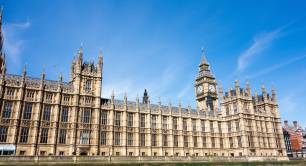Chancellor ignores social enterprise in UK Budget 2017
Social enterprise was not mentioned at all in the UK Budget, delivered on 8 March 2017 by the chancellor Philip Hammond.
The government’s last ever spring Budget (future budgets will be delivered in the autumn) was brief and business-focused.
Opening the Budget speech, Hammond said Britain’s economy was growing robustly, the labour market was delivering record employment and that the deficit was down. He added: “We are building the foundations of a stronger, fairer, more global Britain.”
But ‘social enterprise’ was not mentioned in either the chancellor’s Budget speech or the Budget document.
The word ‘charities’ was included three times in the Budget document, each time referring to the organisations that would be recipients of the ‘tampon tax’.
This is a worrying sign that the government may have completely lost sight of the value of the social economy
These omissions were disappointing to the third sector following the prime minister Theresa May’s announcement in January that she wanted to develop Britain as a ‘shared society’ where everyone had a chance to share in the wealth and opportunity available in post-Brexit Britain.
Social Enterprise UK said: “We’ve got used to seeing no references to social enterprise in the Budget.
“But to see no mention of social investment, of even inclusive business or shared society, of mutuals and barely a mention of charities is a worrying sign that the government may have completely lost sight of the value of the social economy.”
Civil society minister Rob Wilson, who has spoken to Pioneers Post of his enthusiasm for social enterprise and social investment, made no public reactions to the budget. His only Tweets during the morning and early afternoon of 8 March focused on forthcoming events in his constituency of Reading.
In an immediate post-budget analysis (see below), Caron Bradshaw and Andrew O’Brien of the Charity Finance Group said the budget was “a bit of a flat pancake” for the third sector and that it was disappointing the sector was absent from the conversation. They called for the government to engage more with the sector to help deliver its priorities.
Measures of interest to social enterprises included:
• A £300m discretionary business rates relief fund which local authorities can use to support businesses most affected by the business rates relief revaluation. SEUK called for this to be used to support “those businesses which offer the most sustainable economic, environmental and social value”.
• Pubs with a rateable value of up to £100,000 will be able to claim a £1,000 discount on business rates for one year. This could be useful to communities looking to rescue local pubs.
• Small co-operatives exempted from having to conduct full audits.
• £320m for new free schools, which can be set up by parents, charities or community and faith groups.
• The women’s charities which will receive the £12m proceeds of the 2016-17 tampon tax will be announced before the end of March 2017.
• More movement towards devolution with a new settlement for London and local areas to take more control over their “economic destiny”. However, Locality, which represents community-led organisations, said that this would be “meaningless without a civil society role and onward devolution to neighbourhoods”.
• An extra £2bn for social care over the next three years plus a green paper about the future of the sector. Social Enterprise UK said: “The extra money for social care shows that often government eventually responds belatedly to what communities know. We hope it’s not too late before the government comes to realise the power and potential of social enterprise to both create opportunities and reduce inequalities.”


![[file:field_file_image_alt_text]](https://www.pioneerspost.com/sites/default/files/styles/node-teaser/public/images/article/beer%20glass%20new%20copy.jpg?itok=6zkxLEjD)
